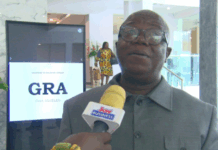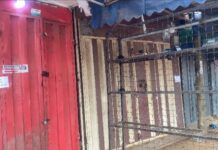The National Health Insurance Authority (NHIA) is proposing an increase of the 2.5 percent NHIS levy collected under the Value Added Tax (VAT) to 3.5 percent.
Chief Executive Officer of NHIA, Dr. Samuel Annor argue that, the current contribution is woefully inadequate to fund the insurance scheme.
On Asempa FM’s Ekosii Sen programme Monday, he said the proposal if approved will salvage the collapsing scheme.
He indicated that, government is currently deliberating on the proposal submitted and hopes that latest by March 2018, a decision would have been made on the proposal.
Dr. Annor urged civil society and the public to influence the decision that will be made by government by letting it know what the citizenry wants, be it changes in the law and the amount channeled to the scheme.
“You know very well that the government listens to the people, if this is what the people want the government is more inclined to act on that. We have a government which is pro health, we might end up with a government in the future that is not pro health and will say that if you’re sick go and find your money and pay for healthcare. This government is pro health, we have to rally civil society and the public to be in tune that this is what we want.
This is the thinking in the world, in the past the IMF, World Bank thought education and health were bad investment. But they’ve all swung 360 degrees to say that the best investment for every country is education and health. When the people are educated and healthy, the economy grows, it grows at a speed that is shocking.”
Dr Yaw Annor disclosed that the NHIA has also submitted a proposal to levy tobacco and alcohol to fund the National Health Insurance Scheme (NHIS). A proposal that every worker contributes 1% of his/her salary to the NHIS, while his/her employer adds 2% to the scheme has also been submitted.
According to him, these are some of the options of finding additional sources of funding to sustain the NHIS policy.
Dr. Annor explained that the reason for the suggestion to tax alcohol and tobacco is borne out of the fact that the nation is likely to spend more in treating people with alcohol and tobacco related illness which will affect the programme.
He said providing additional source of funding to sustain the programme would go a long way to end the cycle of indebtedness of the NHIS to its service providers.
Dr. Annor also conceded that, confidence in the NHIS was waning as a result of gradual decline in the renewal of the cards over the last two years, adding that, it’s really a big bother.






